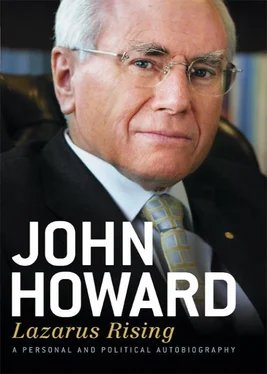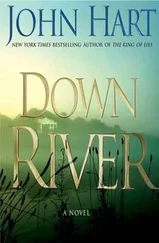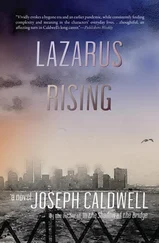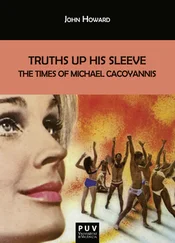When this motion was discussed in our party room, some, including Ian Macphee and others, argued that we should simply support Hawke’s resolution and the matter would then disappear. I argued against this, believing that, if we were to do this, it would be seen as a repudiation of my earlier statements. I had got myself into a bind and was certain to be damaged regardless of how the matter was handled. In the final analysis the party resolved to vote against the resolution. Four of our number, including Philip Ruddock, crossed the floor to support the resolution.
The whole issue had done me considerable damage. It had divided the Liberal Party and diverted attention from the original issue of substance I had introduced during my speech in Western Australia, namely the real doubts I had about multiculturalism. It was a case of having antagonised everybody. Those who supported multiculturalism disagreed strongly with me. Those who may have agreed with my views on multiculturalism lost track of the debate as the Asian-immigration issue intruded, and those who might have agreed, on careful analysis, with what I had said about the pace of Asian immigration, felt that having raised the issue I had then gone quiet on it. I had been wrong to make the original statements on the pace of Asian immigration.
My handling of the issue lost me the support of some press columnists such as the Australian ‘s Greg Sheridan, with whom I had had a good relationship and who over the years had voiced support for many of my positions on other matters. The whole episode weakened my leadership authority within the Liberal Party.
In December 1988 I launched Future Directions, a policy and philosophical manifesto to which Graham Wynn of the Liberal secretariat made a major contribution. In time it would be seen as the document which foretold much of the philosophical direction of the government I would lead from 1996. Its themes were consistent and its policy content strong. It was a classic statement of the economic liberalism and social conservatism which would guide my years as Prime Minister. It depicted the traditional family in front of a white picket fence. There was much initial derision towards the manifesto, but a great deal of that receded as its thrust struck a real chord with middle Australia. I had tapped into something with a subliminal appeal to traditional Australian notions of stability and security in their family and national life.
Months later, and after I had been removed as Liberal leader in May 1989, Rod Cameron of Australian National Opinion Polls (ANOP), the long-time ALP pollster, and a real professional in his business, told me that Future Directions had really begun to bite, that I was ‘onto something’ and that, by implication, the Labor Party was mightily relieved that I had been removed. The value of this document was not only in what it said but also its easy identification with its author. No political leader can convincingly advocate a policy or a set of values unless he or she genuinely believes in them. I believed in every element of Future Directions. It told Australians that I was very much a conviction politician.
Although the Hawke Government remained in a strong political position, my own leadership appeared more secure in the early part of 1989. Unbeknown to me, John Elliott had quietly put his leadership hopes on hold at the end of the previous year, and the coming together of his supporters and those who wanted Peacock to replace me had begun.
Emboldened by the strong reception received by Future Directions, I became more assertive on a range of issues. I persuaded the NSW division not to field a Liberal candidate against the National Party for the Gwydir by-election made necessary by the retirement of Ralph Hunt. The by-election brought into parliament John Anderson, who was to become my longest-serving deputy prime minister. His maiden speech was that of a person with very strong values and a deep and practical Christianity, who would apply what he believed to the daily business of politics. I liked him from the start. John remains one of the most genuinely decent people I have met in public life.
Disunity between the Liberal and National parties had been such a negative for us at the 1987 election that I felt it essential, where possible, to overcompensate when it came to the two parties working together. I therefore set myself the task of achieving a joint Senate ticket between the Liberal and National parties in Victoria, feeling that if it could be brought about, thus emulating the situation in New South Wales, it would not only achieve the beneficial outcome of removing the need for three-cornered contests involving sitting members of each party, it would also be a symbol of unity.
Having directly lobbied the Victorian executive, and with the enthusiastic backing of Michael Kroger, the new and most effective Victorian president, I carried the day with the Liberals, many of whom had been reluctant, and, with Ian Sinclair’s assistance, the leadership of the parliamentary National Party and organisation also came on board.
Jeff Kennett, the Liberal Opposition leader in Victoria, was sceptical, but in the end the push I started produced not only a joint Senate ticket but also a rebirth of the state coalition in Victoria. The formal consummation of these new arrangements took place after I had been removed as leader, but the decisive votes had been taken by the party’s governing bodies in Victoria while I was still at the helm.
A difficult and sensitive policy then emerged — deregulation of the domestic wheat market. At that time a single desk operated, both in relation to wheat sales abroad and also sales on the domestic market. The Government indicated that it wished to deregulate the domestic wheat market, and the Coalition was required to form a view. Unless the Coalition adopted the same position as the Government, it would reflect poorly on our economic credentials. Once again it would look as if the Labor Party were more market oriented than, in particular, the Liberals. I made it very clear to both Ian Sinclair and Bruce Lloyd, the two National Party leaders, that I wanted a change in policy, knowing full well that the overwhelming bulk of the joint party room, who were Liberals, would support my position. I suspected that privately several Nationals were also on side. Ian Sinclair knew the pressure this would put on the National Party, and Bruce Lloyd was explosive in his response. To him it represented a fundamental repudiation of something the National Party had always stood for. It was a challenge to the McEwenite orderly marketing tradition still very much in the ascendancy amongst Nationals.
The Coalition decided to support deregulation of the domestic market while reaffirming the maintenance of the single desk for export sales. The Coalition held together, but only just. Despite his deep personal feelings, Bruce Lloyd pulled back from the brink of resigning as deputy leader of his party. At heart he was a good Coalition man.
On both the issue of the joint Senate ticket and wheat marketing policy I had achieved results. There was no dramatic change in the polls, although the Coalition remained reasonably competitive. There was, however, growing confidence in opposition ranks. We had tackled and resolved difficult issues. Parties paralysed by leadership doubts don’t normally do that.
It was through Michael Kroger that I first met Peter Costello. They had been friends since university days and were close allies within the Victorian division. Early in 1989 Michael led a push to strengthen the federal representation from Victoria in the parliament by encouraging challenges against sitting MPs who were not perceived as performing well. One of those readily within his sights was Roger Shipton, MP for Higgins, who had followed John Gorton in the seat after the latter’s departure from the Liberal Party in 1975. Shipton was a hardworking member, but not likely to make it to senior office in government or opposition. When John Elliott had been hankering after a seat, Higgins was always the one mentioned.
Читать дальше












